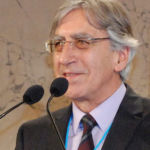Parallel Session II: Addressing the Knowledge Gap through Innovation and Research Networks
This session will focus on the importance of scientific knowledge and data, as well as the challenges of the science-policy interface required to achieve the three ambitious goals of SE4All on energy access, energy efficiency, and renewable energy by 2030.
Several studies have concluded that the three objectives of SE4All are achievable if the necessary investment, political will, and appropriate policies and institutions are in place to make them happen. Therefore, providing policy- and decision-makers with reliable information and data will be critical for the success of SE4All, as well as for other global frameworks, such as the Sustainable Development Goals (SDGs). For instance, there is an urgent need to improve the quality, coverage and availability of data, such as gender-disaggregated data, to ensure that policies and interventions are inclusive for all.
This session will discuss the importance of science to inform decisions and the challenges of spanning the bridge between science and policy, as well as addressing existing knowledge gaps within the three goals of SE4All. The session will also present and discuss how SE4All is meeting this challenge through the three pillars of a major global effort that involves institutions from all over the world: the science pillar that explores pathways for implementation led by IIASA; the monitoring and tracking framework to support implementation and fine-tuning of action led by the World Bank; and the capacity-building pillar led by TERI in India. This approach mobilizes and unites the support of various institutions from both developed and developing countries, and in the process creates a global knowledge framework.


